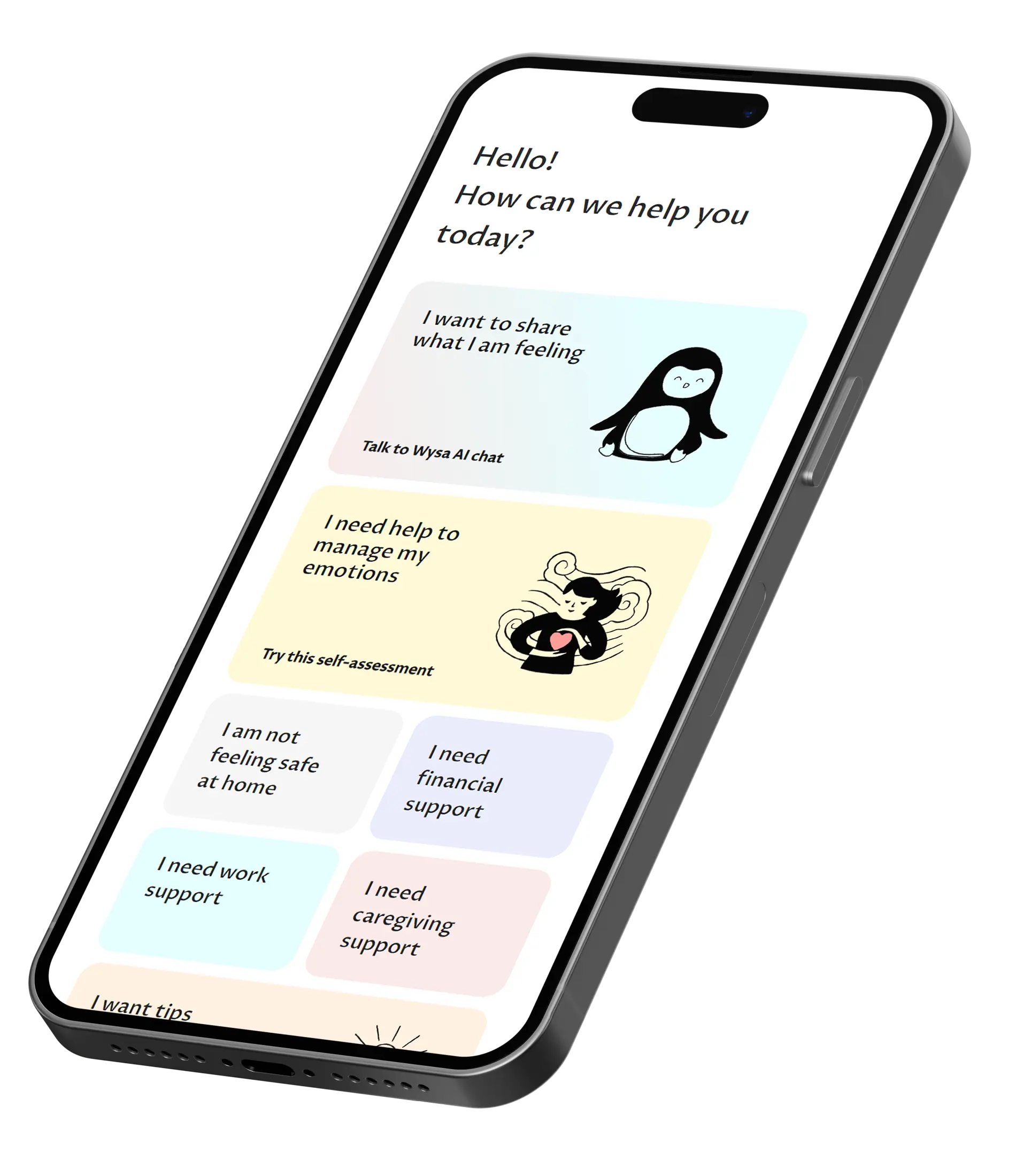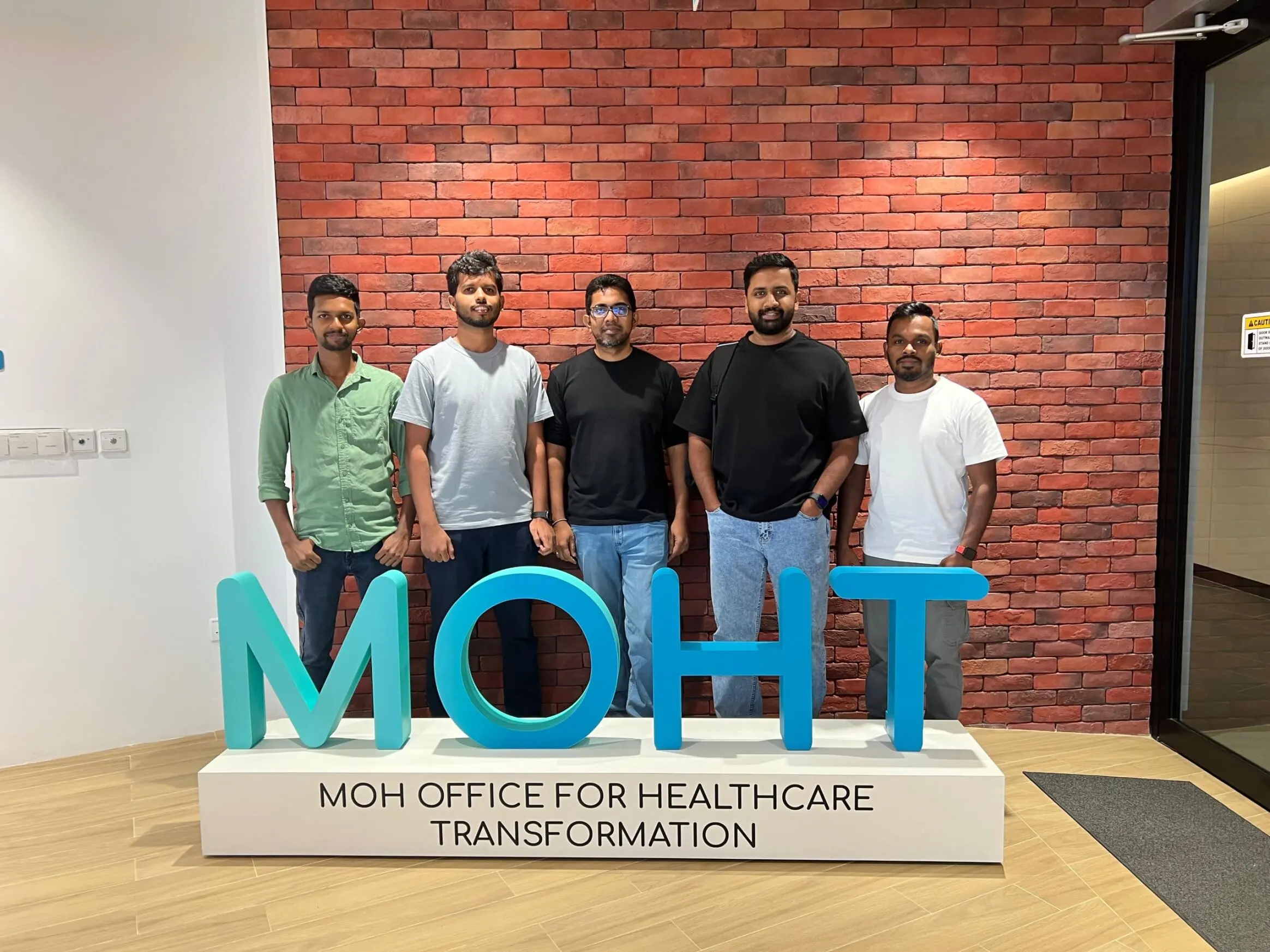
The Ministry of Health Office for Healthcare Transformation (MOHT) is Singapore’s pioneering healthcare innovation office, driving a system that is patient-centric, data-driven, and digitally enabled. Through a multi-stakeholder, partnership approach, MOHT designs and implements solutions that improve outcomes, prevent disease, and deliver value-based care.
One of its most pressing priorities is mental health. The World Health Organization estimates that one in eight people globally live with a mental health condition. In Singapore, the national Mental Health Study found that one in seven citizens experience such a condition in their lifetime, yet only about one in four seek professional help. Stigma, cost, and lack of accessible entry points continue to deter many from reaching out.
Recognizing this gap, MOHT set out to build digital platforms that could provide discreet, round-the-clock access to support for citizens while equipping healthcare professionals with tools for earlier detection and intervention. We partnered with MOHT to bring this vision to life, ensuring the platforms would be inclusive, secure, and built for national scale.

At the heart of this initiative are two flagship projects.
Mindline.sg is a national web and mobile platform that offers citizens tools, resources, and research to help manage mental wellbeing. Designed to be approachable and stigma-free, it provides personalized pathways to support and promotes greater awareness.
HOPES is a mobile application focused on the early detection of mental health risks through lifestyle and behavioral data. By giving healthcare professionals actionable insights, it enables earlier interventions that improve long-term outcomes and reduce costs across the healthcare system.
Together these platforms represent two ends of the mental health journey. Mindline.sg empowers individuals while HOPES supports professionals, creating a connected ecosystem for prevention, support, and treatment.

Our approach combined inclusive design, intelligent data use, and robust engineering. At the foundation was citizen-centered design. Interfaces were built to be responsive and accessible across devices and demographics, guided by research into how Singaporeans seek support for mental health. Seamless user experiences and rigorous QA practices ensured the platforms felt effortless, even at moments of stress.
For HOPES, data and intelligence were critical. We developed secure iOS and Android modules for capturing lifestyle and behavioral information. This gave professionals the tools to intervene earlier while creating a scalable foundation for predictive insights in the future.
Both platforms were underpinned by resilient, cloud-native infrastructure. We engineered systems to support national-level adoption with high availability, continuous monitoring, and DevOps practices that guarantee reliability. Scalability was treated as essential to ensure that the solutions can grow in step with Singapore’s healthcare needs.
Trust was a design principle throughout. Privacy by design was embedded from the outset, with every workflow aligned to the Personal Data Protection Act (PDPA). Security-first engineering safeguarded sensitive health data and ensured that both citizens and professionals could use the platforms with confidence.
%20(1).webp)
Our approach combined inclusive design, intelligent data use, and robust engineering. At the foundation was citizen-centered design. Interfaces were built to be responsive and accessible across devices and demographics, guided by research into how Singaporeans seek support for mental health. Seamless user experiences and rigorous QA practices ensured the platforms felt effortless, even at moments of stress.
For HOPES, data and intelligence were critical. We developed secure iOS and Android modules for capturing lifestyle and behavioral information. This gave professionals the tools to intervene earlier while creating a scalable foundation for predictive insights in the future.
Both platforms were underpinned by resilient, cloud-native infrastructure. We engineered systems to support national-level adoption with high availability, continuous monitoring, and DevOps practices that guarantee reliability. Scalability was treated as essential to ensure that the solutions can grow in step with Singapore’s healthcare needs.
Trust was a design principle throughout. Privacy by design was embedded from the outset, with every workflow aligned to the Personal Data Protection Act (PDPA). Security-first engineering safeguarded sensitive health data and ensured that both citizens and professionals could use the platforms with confidence.
%20(1).webp)
The collaboration between MOHT and our team has resulted in digital platforms that meet today’s needs while anticipating the future of Singapore’s healthcare system. Mindline.sg now offers citizens round-the-clock access to wellbeing resources in an inclusive and responsive format, lowering barriers to early support. HOPES equips healthcare professionals with secure, data-driven insights that enable earlier and more effective interventions.
With resilient systems and compliance-driven design, both platforms operate reliably at national scale and instill public trust. By aligning with MOHT’s mission of patient-centric and digitally enabled healthcare, we have helped set the foundation for Singapore’s next chapter in mental health. Mindline.sg is now on track to become the nation’s primary mental health platform by 2030.
The collaboration between MOHT and our team has resulted in digital platforms that meet today’s needs while anticipating the future of Singapore’s healthcare system. Mindline.sg now offers citizens round-the-clock access to wellbeing resources in an inclusive and responsive format, lowering barriers to early support. HOPES equips healthcare professionals with secure, data-driven insights that enable earlier and more effective interventions.
With resilient systems and compliance-driven design, both platforms operate reliably at national scale and instill public trust. By aligning with MOHT’s mission of patient-centric and digitally enabled healthcare, we have helped set the foundation for Singapore’s next chapter in mental health. Mindline.sg is now on track to become the nation’s primary mental health platform by 2030.